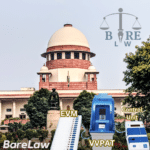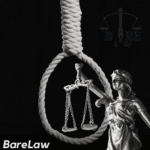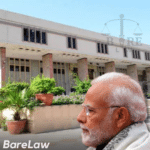
Table of Contents
Need law to allow investigative authorities to monitor but respect privacy: MM Sundresh
Need law to allow investigative authorities to monitor but respect privacy: MM Sundresh
On Saturday, Justice MM Sundresh of the Supreme Court made the observation that there is a need to codify the law in order to enable law enforcement authorities to carry out surveillance while at the same time guaranteeing that basic rights, including the right to privacy, are preserved.
During the 3rd Justice HR Khanna Memorial National Symposium, which was sponsored by the Confederation of Alumni for National Law Universities Foundation (CAN Foundation), the judge delivered a speech on the topic of “State Surveillance and Privacy – The Lakshman Rekha Between.”
“The authority of the law must be backed up by any activity that is meant to facilitate a state mechanism. In order to do this, there has to be a written legislation that gives investigative agencies the authority to carry out surveillance operations. It should go without saying that such a legislation should be subject to the Constitutional mandate, with particular reference to Part III of the Constitute. “By doing so, we could protect the individual’s right to privacy while simultaneously preventing any kind of arbitrary action,” he explained.
Justice Sundresh pointed out that a laws like this and any action conducted in accordance with a law like this might be considered an invasion of privacy.
According to what he said, this legislation had to also lay out its goals and the procedure that the authorities ought to follow in order to carry them out. He went on to say that the principle of proportionality need to be an integral part of any such invasions of privacy that are carried out.
He stressed that the necessity of the hour is to take heed of the voice and concerns voiced in the Puttaswamy judgement, which declared that privacy is a basic right. The Puttaswamy judgement said that the right to privacy is a fundamental right. The judge emphasised that there is a necessity to protect people’s right to privacy by using the principle of proportionality.
The court also made the observation that it is impossible to halt the progression of technology.
“The use of technology cannot be prevented since it is a tool for advancement; yet, it must not be permitted to fall into the hands of undesirable components. During a criminal inquiry (where surveillance is utilised), it is necessary to draw a Lakshman Rekha in order to establish a clear boundary, as he said.
Justice Sundresh, when asked about the necessity of monitoring, stated that
“Surveillance and privacy must coexist in order for either to be effective. There will undoubtedly be continued surveillance so long as there remains the possibility of privacy. It is true that the contemporary world has become a challenging environment in which to live and keep the peace. It should go without saying that the price of peace is quite costly. Any state that does not employ adequate professional monitoring will be regarded as a feeble nation that is vulnerable to assault from unidentified adversaries. It may also be necessary in order to serve the general public’s best interests.
In addition, Senior Advocate Shyam Divan gave a speech at the occasion. In it, he warned against the perils of having an excessive number of CCTV cameras in schools, stating that doing so can lead to a more regulated society.
In addition, he suggested that attorneys would need to become more adept at convincing courts in situations involving privacy issues. He used the example of his loss (as counsel) in the Aadhaar lawsuit to illustrate his point, saying that
Even our fingerprints were not able to be concealed despite our best efforts.
In addition to the other speakers who were present at the occasion, Senior Advocate Guru Krishna Kumar was one of them.
During the second portion of this event, it is anticipated that Justice Dipankar Datta of the Supreme Court would deliver a speech to the attendees.





